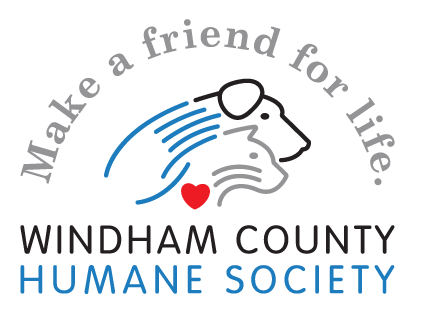
FAQs
Adoption FAQs
-
Our shelter is located at 916 West River Road (Route 30) in Brattleboro, Vermont, about 5 minutes from downtown Brattleboro.
-
Yes. Adoption fees help support the important work we do. View our Adoption Process page for more information about adoption and fees.
-
Our available animals (dogs, cats, community cats and other animals) are listed on this website. When an animal is made available, their photo and information posted. If you no longer see a pet on the website, it is no longer available.
Lost & Found Pet FAQs
-
If you find a lost dog, cat, rabbit, or other domesticated animal, please call your town’s animal control officer (ACO). If you can't reach the ACO, please call the shelter and list the animal in our Lost & Found Pet Report.
-
It is difficult to tell an owned, free roaming cat from a true stray. For this reason, please do not feed outside cats. While it may seem kind, cats quickly learn who gives out free food and they will keep coming back, even if they are being fed well at home.
If a cat appears in poor condition (thin, missing fur, or other signs of living outside for an extended time), please contact the Animal Control Officer in your town for assistance.
-
You may consult our Lost & Found Pet Reports or call our office. By law, owners have 5 days to claim their animal(s). After that, ownership transfers to WCHS.
Miscellaneous FAQs
-
WCHS does not euthanize for time or space. All adoptable animals are cared for until they find a new home, no matter how long that takes.
WCHS does euthanize animals for severe medical or temperament issues. Fortunately, these instances are rare (less than 5%).
-
Animal welfare organizations look at their “Live Release Rate” (LRR) to gauge success. In other words, of all the animals that leave the facility, how many leave alive? We strive for a Live Release Rate of 90% or better. Since we started tracking that number in 2004, the WCHS Live Release Rate has averaged 91%.
-
Annually we help over 2,000 pets each year through our programs. This includes over 550 adoptions, 1,600 animals treated at the clinic for wellness care or spay/neuter surgery.
In addition our Pet Food Pantry routinely supplies over 200 families with pet food, and we aid 200 lost pets each year.
